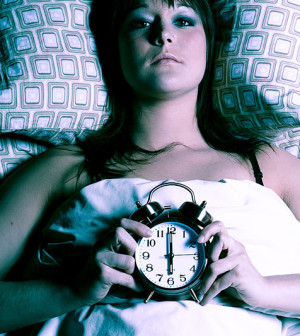Don't Miss
- 8 Ways to Increase Dopamine Naturally
- 7 Best Breads for Maintaining Stable Blood Sugar
- Gelatin vs. Collagen: Which is Best for Skin, Nails, and Joints?
- The Long-Term Effects of Daily Turmeric Supplements on Liver Health
- Could Your Grocery Store Meat Be Causing Recurring UTIs?
- Are You Making This Expensive Thermostat Error This Winter?
- Recognizing the Signs of Hypothyroidism
- 10 Strategies to Overcome Insomnia
- Could Artificial Sweeteners Be Aging the Brain Faster?
- Techniques for Soothing Your Nervous System
Health Tip: Coping With Sleepwalking
By LadyLively on January 9, 2014


Sleepwalking is a very real disorder that can be dangerous to the sleepwalker and family members.
The National Sleep Foundation says there’s no “cure” for sleepwalking, but there are things you can try to help prevent the problem and keep the sleepwalker safe:
- Get more rest. A major trigger of sleepwalking is sleep deprivation.
- Avoid alcohol and any medications that tend to trigger sleepwalking episodes.
- Create a consistent and relaxing bedtime routine.
- Make sure the sleep environment is safe. For example, don’t allow a child who sleep walks to sleep in a bunk bed.
- Keep doors and windows locked, keep any sharp or breakable objects far from the bed, and place gates above stairways.
Source: HealthDay
Copyright © 2026 HealthDay. All rights reserved.










